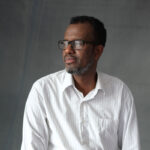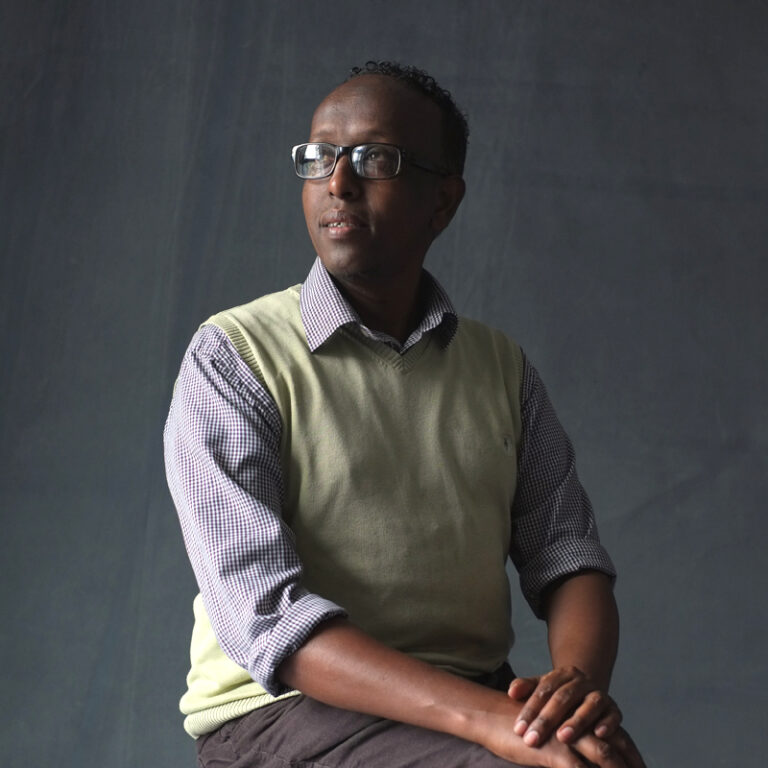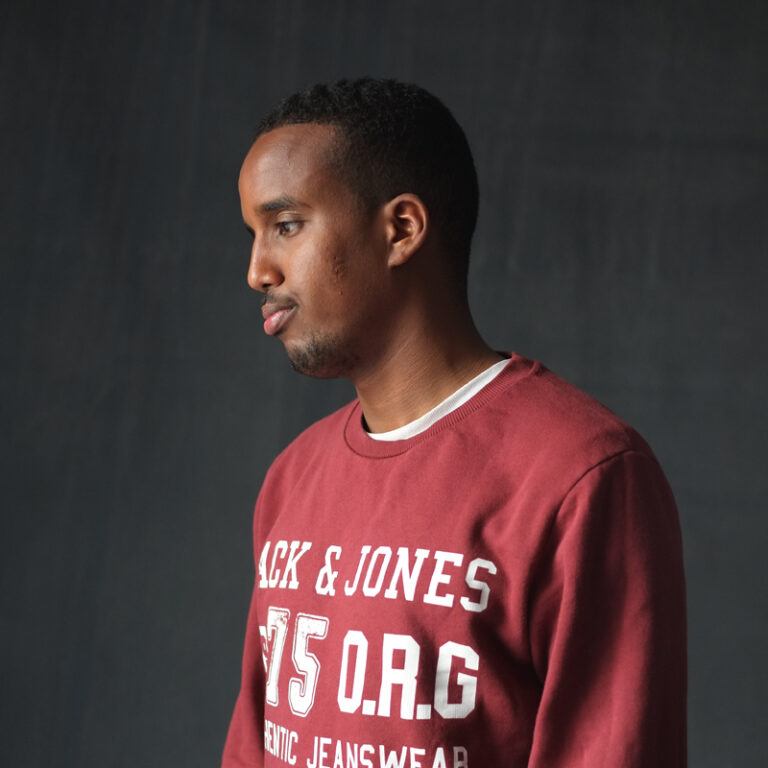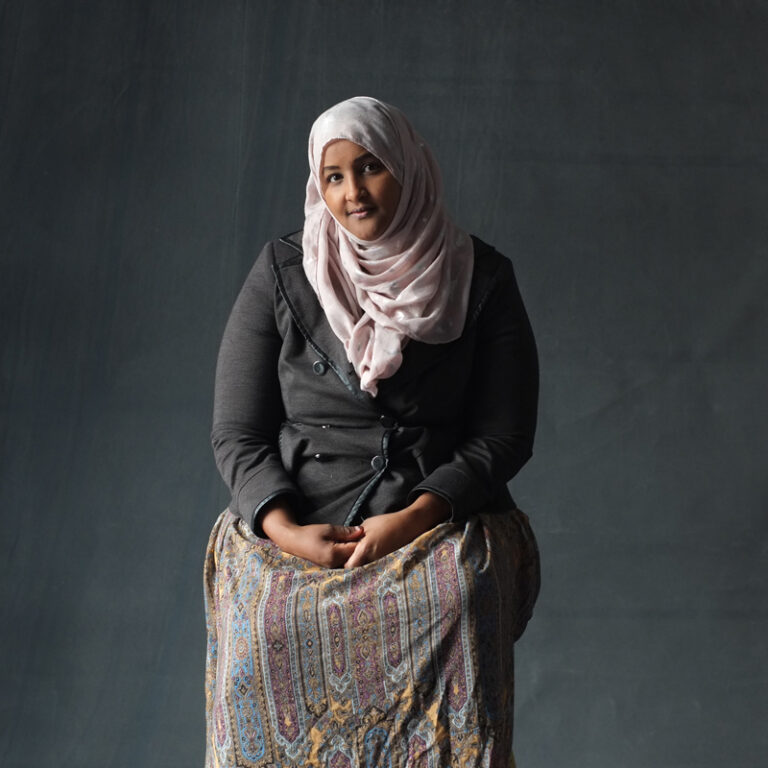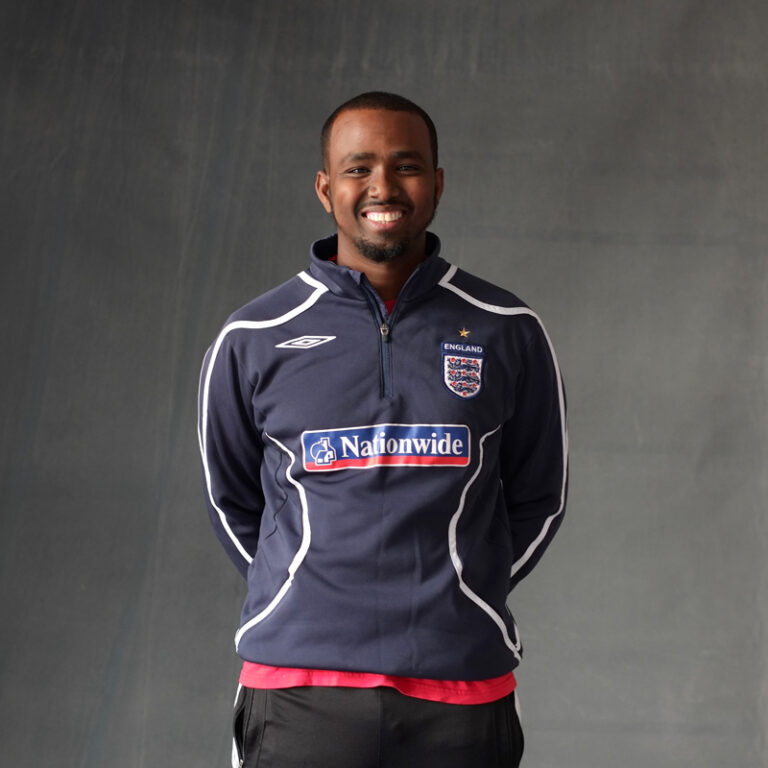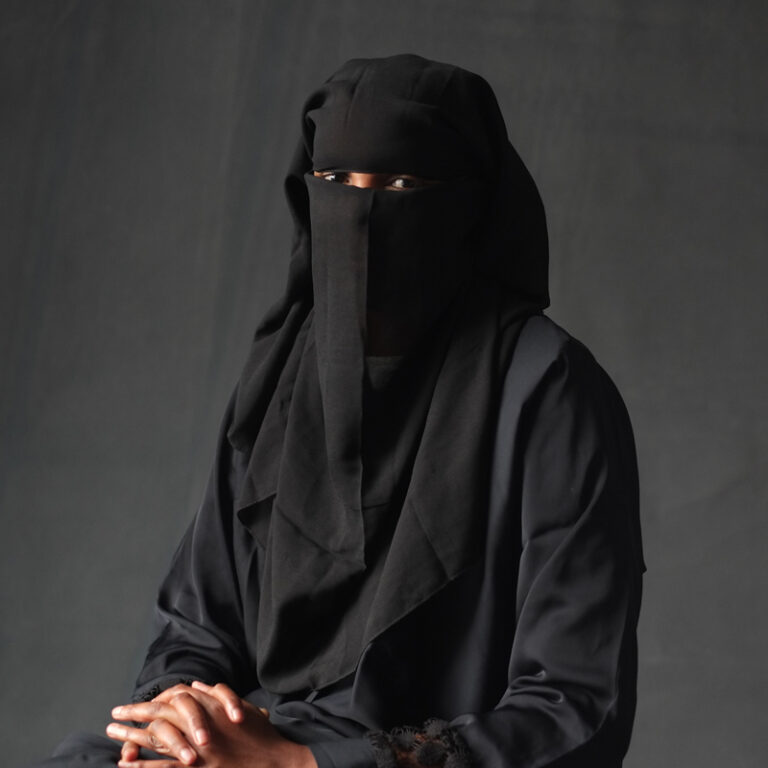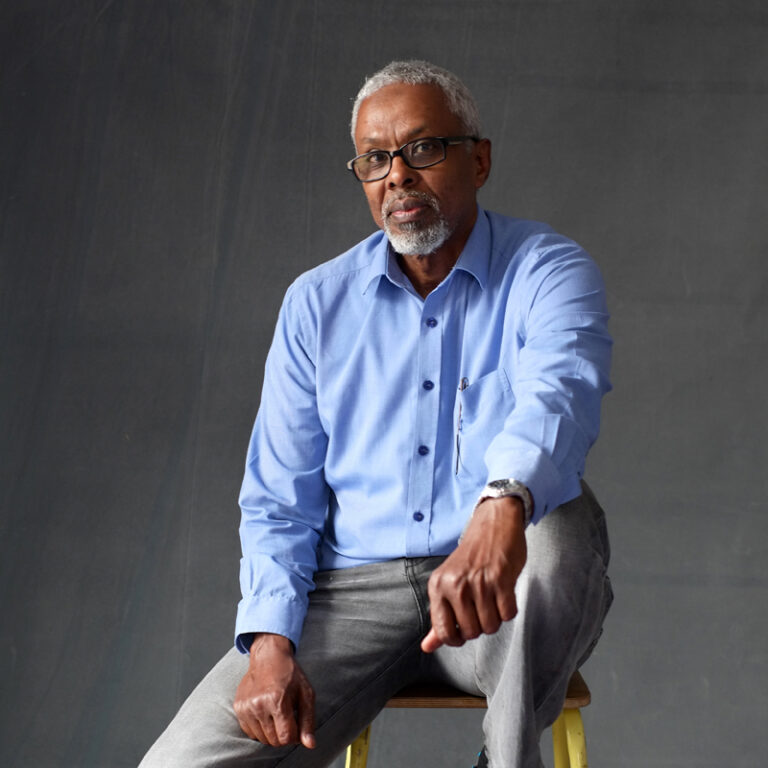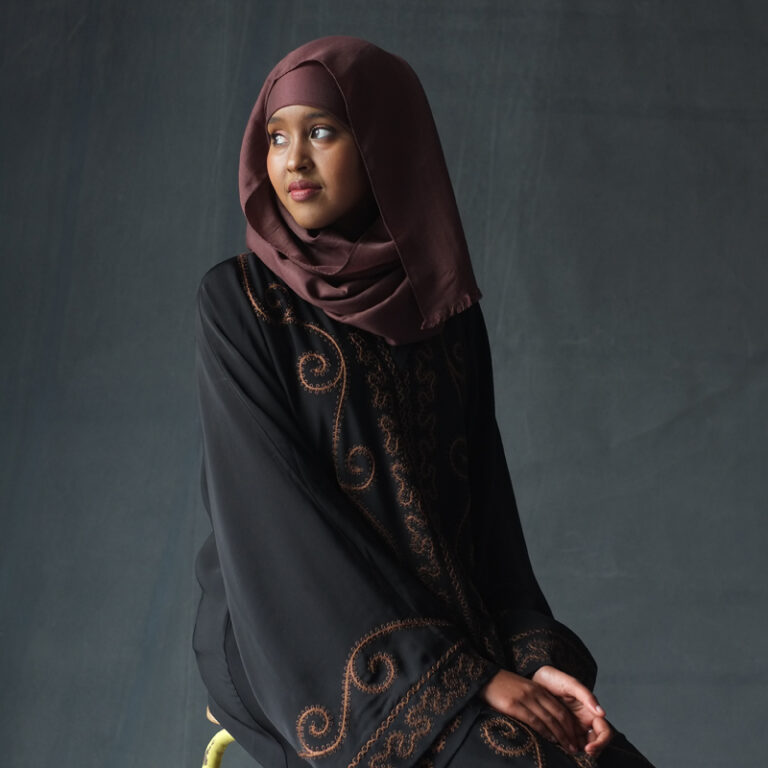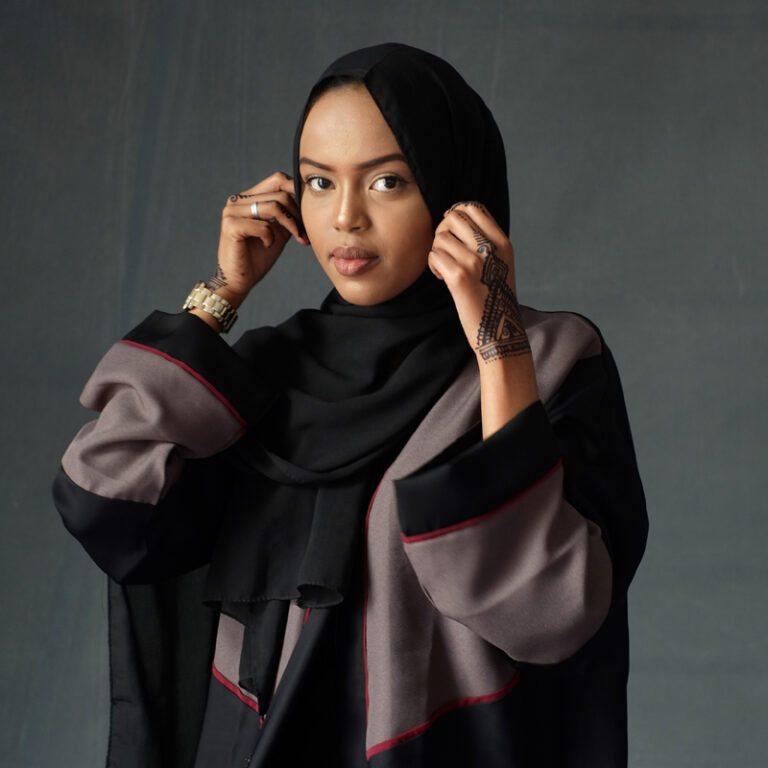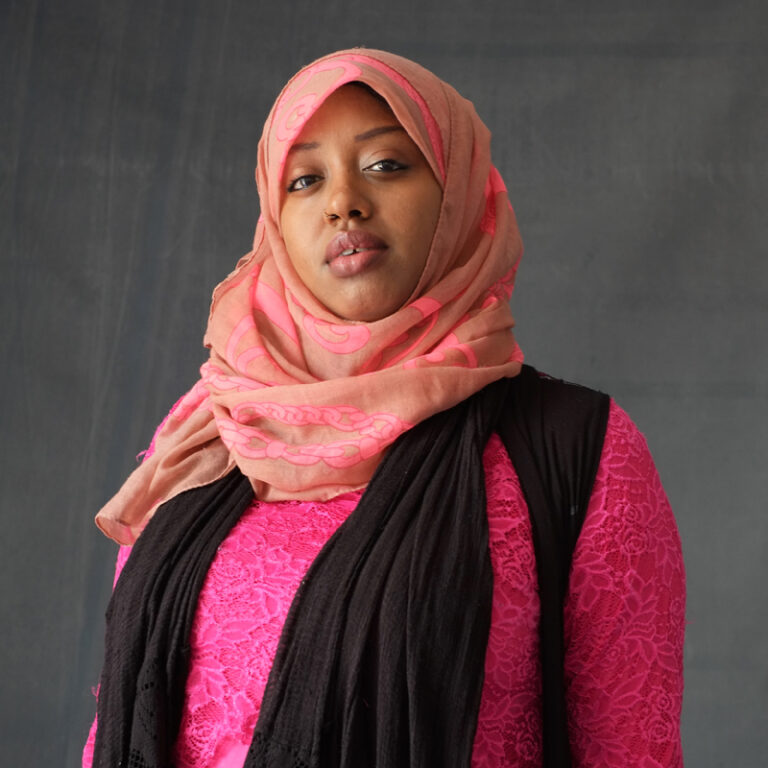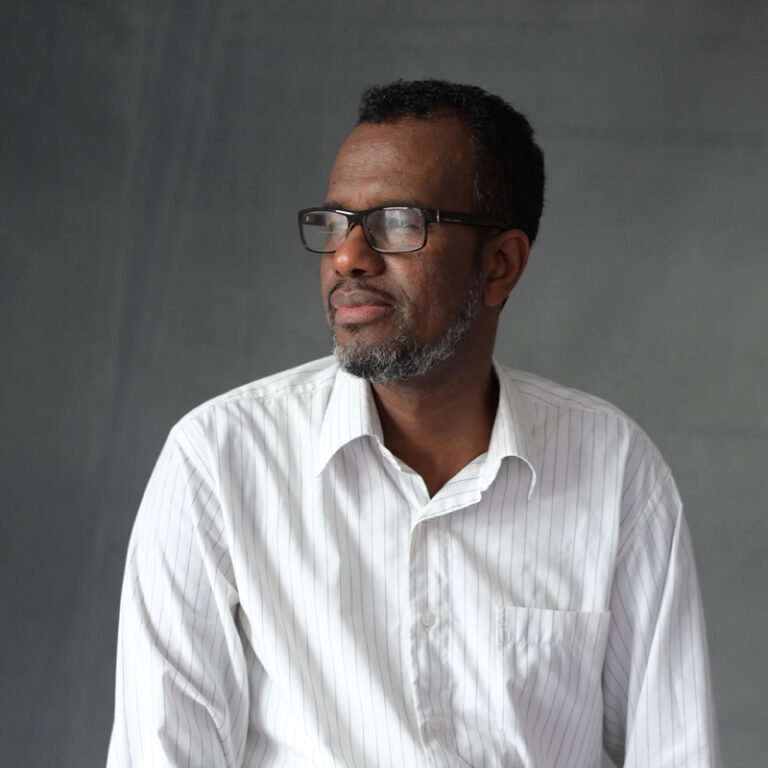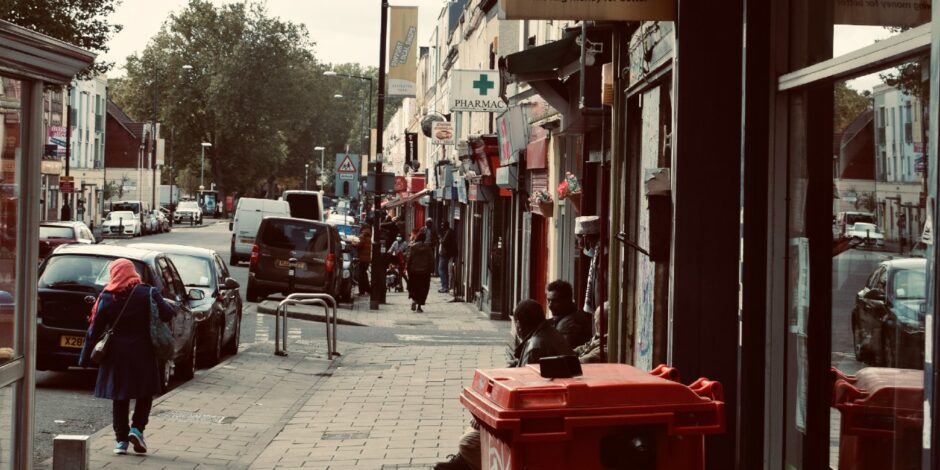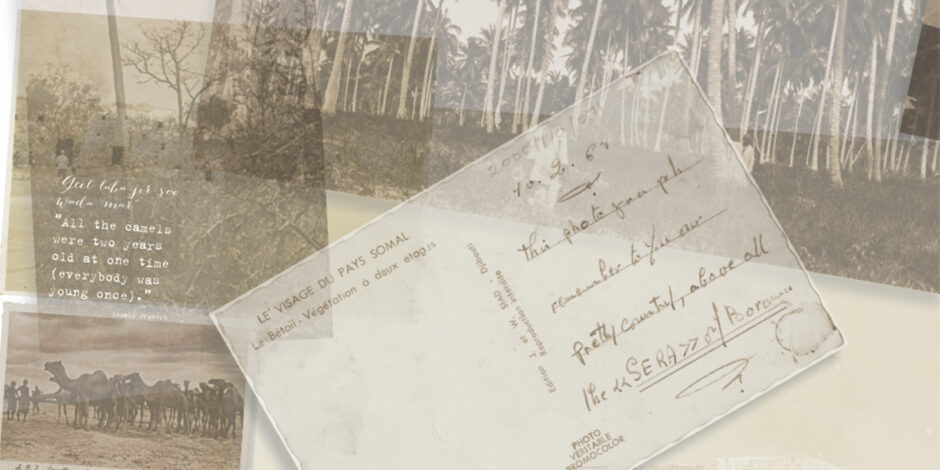Following the arrival of European powers in the Horn of Africa, migration to the UK and to Bristol has been fuelled by empire, war and personal adventure.
In the 1800s, Britain was using Yemen as a stopping point on the way to India and established a base in the area, bringing Somaliland under British control. Colonies were also established in the region by France (in Djibouti) and Italy (in Somalia). Somali seamen working on British merchant ships started to settle in British port cities.
After jobs in the merchant navy become scarce in the 1960s, many Somali families already based in the UK moved to industrial cities such as Birmingham, Sheffield, Manchester and Cardiff. Back in the Horn of Africa, full independence had come to both British and Italian colonies (Somaliland & Somalia respectively) and they merged to become the United Republic of Somalia. President Mohammed Siad Barre led a coup and introduced a socialist dictatorship.
By the 1980s the president was facing huge opposition after filling governmental positions with members of his own clan. Guerrilla groups formed with the intention of overthrowing him. Somalis started to arrive in Bristol as refugees fleeing this unrest. By 1991, there was full scale civil war in Somalia. Mohammed Siad Barre was overthrown and central government collapsed. Refugees arrived in Bristol in increasing numbers.
Around this time, the former British territory of Somaliland declared independence from the United Republic of Somalia. An internationally-backed government was formed in the south but struggled to establish control. United Nations peacekeepers were sent in.
By the 2000s governmental structures had been set up in Somaliland and attempts were made to re-establish the pre-1960s borders. A new transitional parliament was formed in Kenya and began returning to Somalia. But Mogadishu and much of the country’s south was seized by a coalition of Islamist courts.
In the last decade, a new internationally-backed government has been installed in Somalia and the country is slowly stabilising. However, Al-Qaeda-aligned Al-Shabab insurgents still pose a threat to peace. Between 2010 and 2012, the UN reported that nearly 260,000 people were killed by famine alone. Somalis continue to arrive in Bristol as refugees. Others arrive for quite different reasons: for education, for work, for love.
The first Bristol Somali Festival took place in 2015 in order to celebrate this now well-established community. It has since been going from strength to strength.
Abdul
“Bristol is my home. After the fall of the president, Somalia was not safe anymore. That’s why ended up in Holland, and then here in Bristol. I was born in Mogadishu, a very beautiful city. The memory that I still have is the blue beaches and the white sands.
Somalinimo [Somaliness] is coming from eastern Africa, and being able to link up with any kind of heritage from that area and being able to speak that language. The Somalinimo is different from the politics as it is unfolding right now. If you go to Mogadishu, you have Somalians, and you go to Jijiga, which is part of Ethiopia, they are still Somalian.
Living in Bristol you can find whatever you want. It is also a city where we as Somalians have our own identity and have our own way of thinking. That is why I like being in Bristol.”
Choueib
“Why did I leave Djibouti? Primarily to educate myself. I’m very grateful for the warm welcome I received in Bristol.
Considering every Somali as your brother, this is what’s so unique about Somalis. It’s togetherness. Speaking one common language, coming from the same area of the Horn of Africa, sharing the same sort of language and then sharing bits if culture as well. So this is what I call Somaliness. And the physical features, the way we look, and the language that we share. This is what Somaliness means to me.”
Nura
“You can be Bristolian and Somalian at the same time. Personally I have got the Bristolian accent, and the Somalian features.
I was born in Bristol and I’ve lived here all my life. When I was 8 I moved to Somaliland for about two years, just so we could learn the language and learn the culture. We only spoke English and everyone there only spoke Somali – just learning on the go.
I really like how we have clans and tribes in Somali cultures, it brings us all closer together and makes us identify with each other wherever we are. We can just say what tribe we are and we instantly have a connection with someone else that we never met before. When I think of Somaliness, family is the first thing that comes to my head.”
Mohammed
“I left Djibouti in 2002 to pursue the love of my life but also to get my high education outside of Djibouti .
The whole Somali culture is appealing to me and I wouldn’t change anything from it. I like the richness of the Somali way of life. Somali people are always relaxed and calm, and always happy, whatever is the situation they are in, they are really grateful.
Now Somalis are perceived as refugees or immigrants, pirates who are touched by war and famine and who have nothing. And that has imparted on how the Somali people perceive themselves.
I am Somalian, I am Djiboutian, and at the same time and I am Bristolian. I’ve been living and contributing to Bristol and British society for the last 14 years and I am really proud to be both. I have been really welcomed. I have had the chance to go to University, to work, and that’s thanks to Bristol. I love living in Bristol.”
Muna
“I’ve lived in Bristol for 23 years. I didn’t choose to leave Somaliland, my family left when the war was happening, and I guess they came here because it was safer.
The most beautiful part of Somali culture is the importance of family, and I think that it comes from the fact that the majority of Somalian are Muslims. Somalis don’t differentiate between your first cousins or whatever, it’s all just family and they work to maintain that.
My primary identity is as a Muslim, so being Somali is secondary. Bristol is my home. The gurt lush accent, the lovely attitudes of the people, the beautiful city, the fact that there is just so much variety, there is just everyone from everywhere. It is just so diverse and beautiful.”
Nageeye
“I left Ethiopia when I was very young, I was taken to Mogadishu when I started school. In 1988, when the war broke out in the north I fled Somalia to Egypt and then came to England. I came to London at first for 5-7 days in detention. In1995 I came to Bristol.
Home is where you consider to be your soul place, and I consider that to be Bristol. I have all my family in – I don’t know if I call it Somalia – technically it’s Ethiopia. Emotionally I am attached to that part of the world.”
Huda Ali
“I left Somaliland because of the civil war. I see Bristol as home, because that’s where I grew up, that’s where I spent the most of my life. But I also see home in Somaliland where I simply won’t forget my early years.
Somali means to me speaking the Somali language, dressing in the Somali way. Food, clothes, poetry. I feel like the Somali community have got that connection where they watch out for each other, when they can talk to each other, when they can share situations although they are not related or know each other. The civil war has affected people in terms of the way that they identify themselves, within Somalia.”
Osob
“I was born in Bristol so I’ve lived here all my life. Home for me is Hargeisa, Somaliland.
I feel like the Somali community is very underrepresented when it comes the media and other major aspects in society. I tend to celebrate any events that represent Somali culture. Somali people are very talented when it comes to literature and poetry. It’s something that I very much respect and value.
The main thing that’s unique about being Somali has to be tribes and clans. From someone’s way of speaking, the dialect, you can tell what tribe they’re from. Immediately you feel connected to them, instantly you’re family, you have a new family member. That’s what makes us unique and distinctive.”
Yasmin
“My home, is where I live in the UK, Leicester before and now Bristol. But also home for me is where I grew up in Dubai. I had really pleasant memories.
I’m quite active in the community, I am anti-tribalism. I identify myself as Muslim, then Somali. Somali culture? A lot of it is based on Islamic teachings, so for me it’s kind difficult to distinguish the two. I’ve travelled quite a lot with the UN and I have seen Somalis in every single country I have been. A Somali person is a resilient person: even if they have nothing, they adapt really fast to a new environment. There is a lot of positivity in the Somali culture as and lessons to learn from it as well.”
Abdi
“I was grown up in Mogadishu, Somalia. For the past 25 years I’ve been living in the UK. When I came to this country I didn’t want to migrate. I came as a refugee although both my grandparents worked here. It’s fascinating when I look back that I grew up in Mogadishu. When I see bombs exploding everywhere, it is sad.
Somali culture actually is not only dance and music. It is poetry, it is a rich culture, it has mythical stories. Somalis, whenever they talk and engage in conversation, you will see them using poetry verses and proverbs. The way we talk, we make a lot of gestures, we stress every single word. That makes us loud, people think we are rude or fighting with each other when we are having a normal conversation!”
Our contributors
This content was developed as part of Somalis in Bristol: Where are we from and who are we now? a collaboration between M Shed, Black Southwest Network, Bristol Somali Forum, Bristol Somali Media Group and members of Bristol’s Somali communities. Original project funded by Heritage Lottery Fund and Arts Council England.
Original photography by Kirsty Mackay.
Background collage images are from the Elliott collection and Wright collection in the British Empire and Commonwealth Collection at Bristol Archives.
